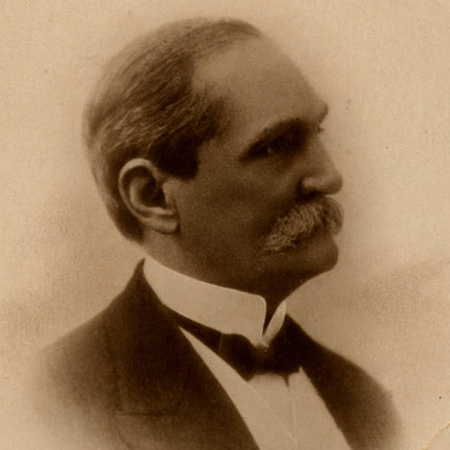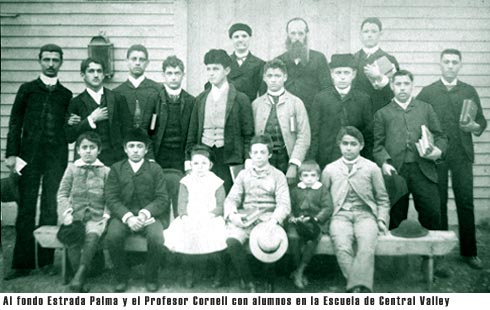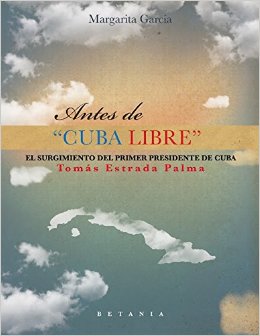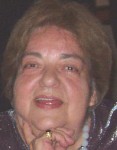
The New York City launching of Margarita García‘s
Antes de “Cuba libre,”
a groundbreaking historical profile on the life of Tomás Estrada Palma, the first president of the Republic of Cuba, before taking office and facing “an ocean of difficulties” (as George Washington described the task before him days before being sworn in as first president of the United States). Dr. García’s in-depth research unveils virtually unknown aspects of Estrada Palma’s life before his presidency, following his trials and tribulations across three continents, through prison cells, filibustering expeditions, ingenious fundraising campaigns for the cause of Cuba’s independence, his stewardship of the Cuban Revolutionary Party after Martí’s death, and the events leading to his inauguration. The illustrated presentation–enhanced by rare archival images, documents, and photographs–will shed new light on an often misunderstood historical figure who, according to the author, was a teacher by vocation, an idealistic revolutionary, a scrupulously honest man and a headstrong president.
Dr. García will be introduced by Manuel Márquez-Sterling, whose father, Carlos Márquez-Sterling, was the author of the seminal book on Estrada Palma’s presidency, Don Tomás, biografía de una época (Ed. Lex, La Habana, 1953).
Below, Tomás Estrada Palma at his school in Central Valley, New York (circa 1885),
with profesor David Cornell and some students.


BARUCH COLLEGE
25th Street, bet.
Lex and Third Aves., NYC
6th FLOOR: CONFERENCE
ROOM 210
SPACE IS LIMITED
Free Admission
All who wish to attend
must RSVP at:
cccofny@aol.com
This event will be held
in Spanish.
 Margarita García was born in Havana, where she studied at Colegio Trelles and the Ruston Academy. In the United States she attended Columbia University, earning a Bachelor of Science, a Master of Arts and a Ph.D., all in Experimental Psychology. She is Professor Emerita of Montclair University, where she taught for 38 years. Throughout this time, she worked in various fields and held key positions, including Research Director for the Cuban National Planning Council, a research fellow at the Hispanic Research Center at Fordham University, and, most recently, Director of the New Jersey Office for the International Rescue Committee, Inc. In 1999, she was granted the Humanitarian Award for her work in benefit of refugees and immigrants, and was recently honored with the Order of Fray Miguel Loredo for her support of human rights and freedom in Cuba. From 2007 to 2009, she was a member of the group of representatives of the International Union of Psychology before the United Nations. From 2004 to 2015 she traveled extensively to complete her research studies on the life of Tomás Estrada Palma preceding his presidency. In 2014, she received the Elena Mederos Lifetime Achievement Award from National Association of Cuban-American Women.
Margarita García was born in Havana, where she studied at Colegio Trelles and the Ruston Academy. In the United States she attended Columbia University, earning a Bachelor of Science, a Master of Arts and a Ph.D., all in Experimental Psychology. She is Professor Emerita of Montclair University, where she taught for 38 years. Throughout this time, she worked in various fields and held key positions, including Research Director for the Cuban National Planning Council, a research fellow at the Hispanic Research Center at Fordham University, and, most recently, Director of the New Jersey Office for the International Rescue Committee, Inc. In 1999, she was granted the Humanitarian Award for her work in benefit of refugees and immigrants, and was recently honored with the Order of Fray Miguel Loredo for her support of human rights and freedom in Cuba. From 2007 to 2009, she was a member of the group of representatives of the International Union of Psychology before the United Nations. From 2004 to 2015 she traveled extensively to complete her research studies on the life of Tomás Estrada Palma preceding his presidency. In 2014, she received the Elena Mederos Lifetime Achievement Award from National Association of Cuban-American Women.
Manuel Márquez-Sterling was born in Havana, Cuba, and has lived in the U.S.
since 1960. He is Professor Emeritus of History at Plymouth State University.
Before becoming a historian he graduated from Havana University Law School
and practiced law in Cuba. His non-fiction books include, among
His non-fiction books include, among
others, History of the Island of Cuba, co-written with his father,
and 1952-1959: The True Story of Castro’s Rise to Power.
He is also known for his acclaimed historical novels La Cúpula and Hondo Corre el Cauto. The latter topped Miami’s El Nuevo Herald
best sellers list. His accomplishments as a playwright include
La Salsa del Diablo (The Devil’s Sauce) which won the
Letras de Oro Award in 1993, and Corneille’s Dream, winner of the 1998 Southern New Hampshire University Spectrum Award for
One Act Play. Following in the footsteps of his grandfather, Manuel Márquez-Sterling
(1872-1934), he is also a journalist. His long-running op-ed column appears in the
Miami-based (Spanish language) Diario Las Américas.
This event is presented in association with the
Department of Modern Languages and Comparative Literature and the
Department of Latin American Studies of Baruch College at CUNY

With the promotional cooperation of
 and
and 